|
So another experiment in this collective- we applied for an artist in residency and got it! So, as a collective, as of early November, we are taking one of three residencies in the Double Take thrift store, which supports Yonge Street Mission and Evergreen Mission, as well as other programs and of course, serves the local Cabbagetown community (and beyond) by running an awesome and affordable second hand clothing/ housewares store. We have long been fans of the store, donating our swap remains over the years to their intake centre in the back (always stopping in to peruse the goods in the front as well, of course) Over the summer, repair activist Helen Frank @helenmends was one of the artists in residence here and in June I (Tanya) attended one of the online workshops she ran, hosted by @doubletakeysm (worth following on the 'gram!) They make good use of their shop, looking to highlight vintage goods for extra money for those who can afford it, running interesting programs (like @jubileeworkroom) and creating an upcycling centre with torn clothes available at low cost for would be makers and repairers. We went down to check out the store on October 8, meet our contact, Sharon, and had a serendipitous run in with one of the other artist in residence, @economydrygoods The residency includes decorating a storefront display AND having items for sale in the store AND opportunity to co-host workshops with Double Take. So a great gateway for a bunch of the artists in our collective (or proximal) to stick our toes into making things for sale, into making public art for display, into running workshops with a new community. All very exciting. Our minds are filled with joyful possibilities and our hands with art making experiments.
Well, that was fun. We hosted 3 clothing swaps in three neighbourhoods over 3 weeks of back to school swapping of kids clothes. Despite some stress over weather, we had three beautiful Saturdays, plenty of volunteers hosting, putting up posters, storing clothes between swaps (thanks Amy!) Each neighbourhood had a primary lead from Works-in-Progress (Marnie in Hamilton, Tanya in Davisville, Leah in Moss Park) who worked with volunteers and co-hosts. We kept the swap time limited to three hours- enough time to visit, not too tiring for volunteers. The Westdale community in Hamilton was new to us, so Marnie reached out to the local Buy Nothing Group and found enough hosts within walking distance to her home to host in their own yard, and a few extra people to help co-host. Each host was hosting the size they wanted, and everyone got some good finds. We had a car load to start: clothes from last year's swap and a LOT of classroom shoes from the 2019-2020 school year. Hosts all reported that donations came and they had a steady series of "shoppers" at all locations. We ended up with more than we started with for the next swap, and some neighbours added to the fun with a lemonade stand and tunes. The following Weekend we were in Davisville, Midtown Toronto, where we have been co-hosting swaps for many years, and had many return hosts and donations as well as some new participants. People are generous and community minded and we had enough yards that we were able to keep the event to a couple of blocks, making it easier for families with multiple children to go from yard to yard for different sizes, and gave it the feel of a street fair. With increased traffic and enough yards, we were able to add on a repair and upcycling station to demo and encourage people to seek ways to extend the life of their clothes (either through repair or by sending them on a new journey as a basket or doll.) We were VERY busy at all stations all day, with many donations coming in AND going out. Based on host estimates, an average of 20 bags/yard went out over 6 yards... so about 120 bags of clothes found new homes and AGAIN we had more than we started with. As well, reports back from hosts saying that there were other less quantifiable measurements of change: kids had an opportunity to help AND shop, and families witnessed that you can just share your clothes and get new ones and help each other this way, without shopping. Also, many people will be back: we plan to do this again in the Spring, with the support of our local councillor, perhaps expand it to an eco fair in the park and add adult clothes. The final weekend, October 2nd, was in Moss Park, where we partnered with Building Roots as part of their (extended) Summer animation in the park. This is a food scarce neighbourhood and Building Roots runs a weekly market (Moss Park Market at 260 Queen Street E.) We have worked together in the past, hosting a Winter clothing free market in 2019 and co-hosting up-cycling and repair workshops in person out of the market in early 2020 and virtually online during the pandemic. The Moss Park Market has remained open throughout the pandemic, and they have used this public facing space to bring extended food delivery but also books, games for kids, and activities in the park; we were pleased to be part of this tradition. Building Roots provided tables and blankets and a volunteer network, as well as a co-lead, Mac, and Leah brought signs and bags and our remainders from the week before. The event ran 12-3, and for the most part it was well received, many families took part, and the clothes were very welcome. We still had remainders but less than we started with this time. All in all, a lot of clothes found a good home. We made about $280 in donations altogether from all three swaps, this can go to pay our poster artist, Treya, and cover the costs of shlepping (gas for cars) and printing posters. We want this to be a regular event in these neighbourhoods, so people can plan and save outgrown clothing donations for it, and plan to shop used rather than new.
This was an expansion of the work we have been doing for years, and the bulk is still done by volunteers, but we we able to pay for administration hours through a Waste Reduction Community Grant from the City of Toronto's LiveGreenTO program. For these swaps, we had no central location to collect clothes, so everything had to be dropped off the night before or day of the swap- this disperses the work and makes sorting and packing up manageable. There is little management needed- one person can run point as long as there are hosts on the day. This is a replicable model- we shared resources and passed on signs and tips from swap to swap. It builds on a circular model of giving, rather than donations to a central charity for redistribution. Neighbour to neighbour to neighbour and back again. AND it was fun and low stress, which is what we aim for in all our endeavours. . |
about us
art experiments turning waste into beauty Archives
February 2024
Categories
All
|

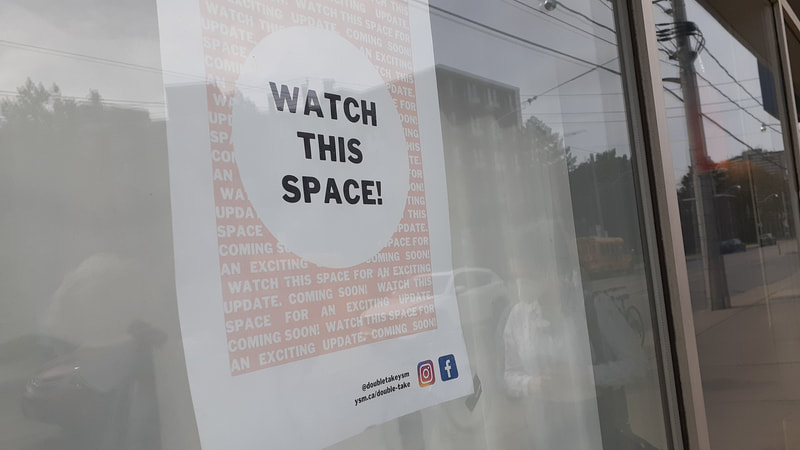
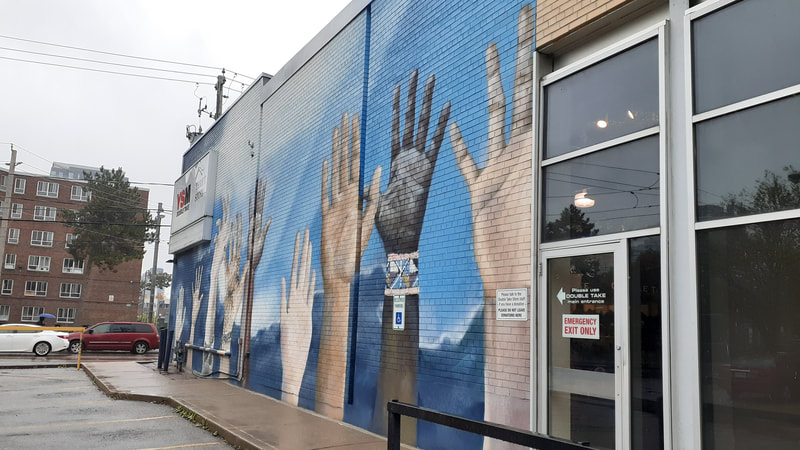
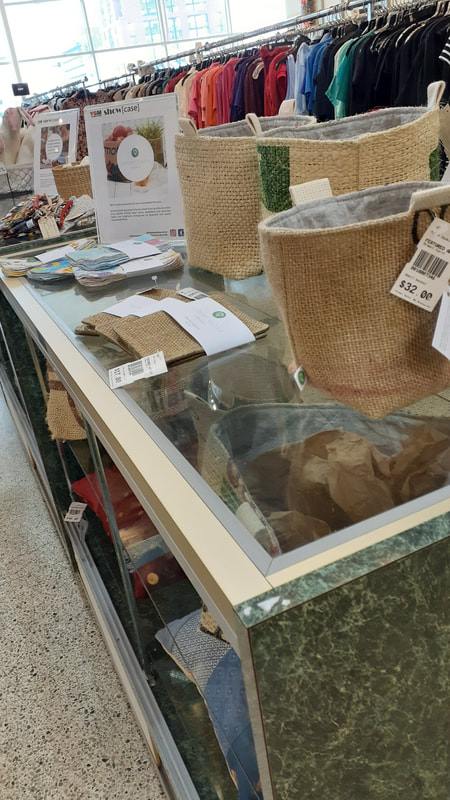
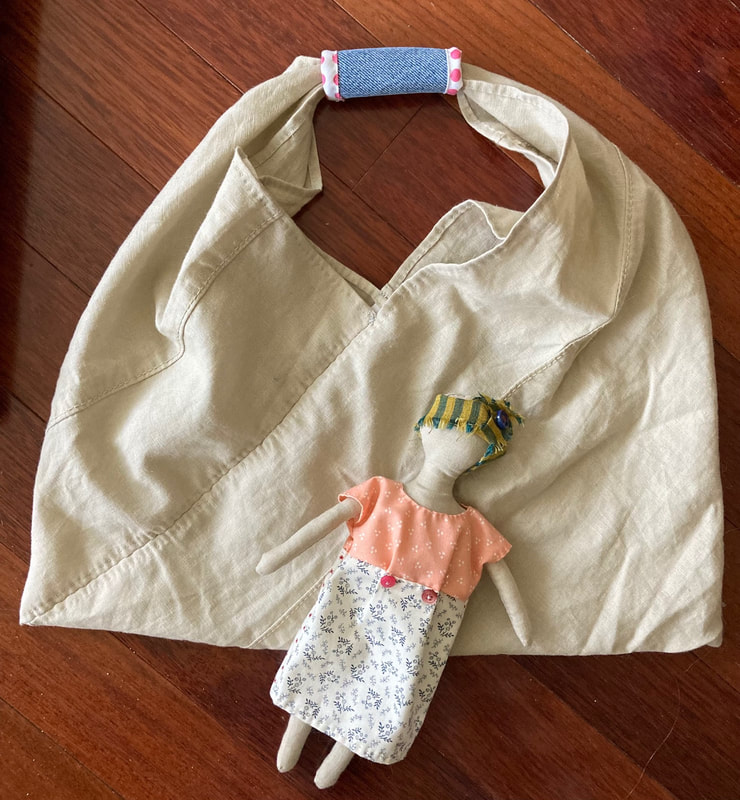
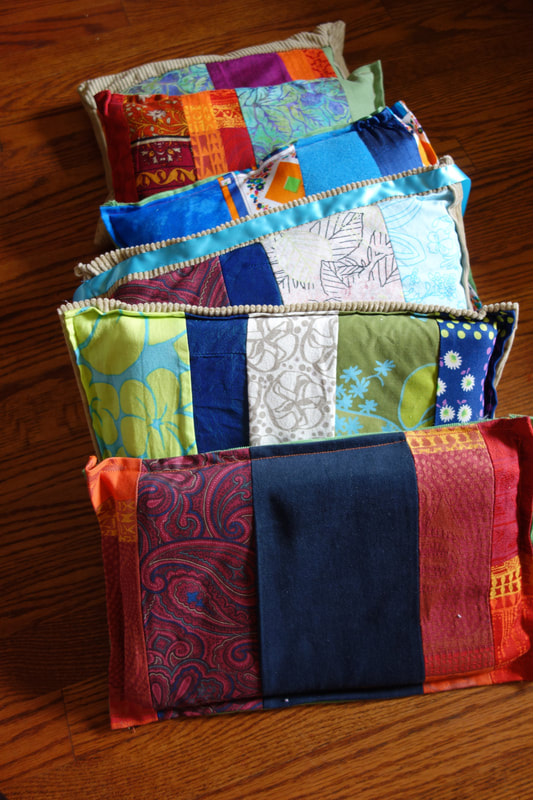
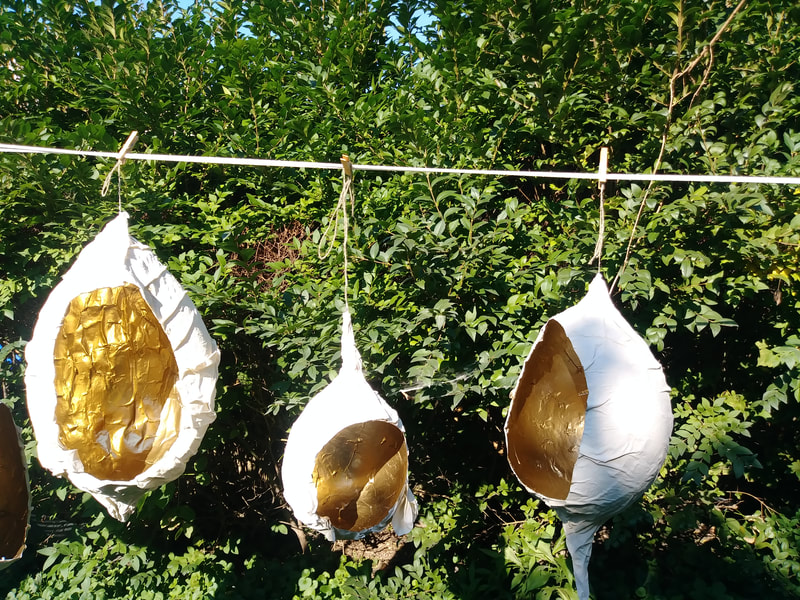
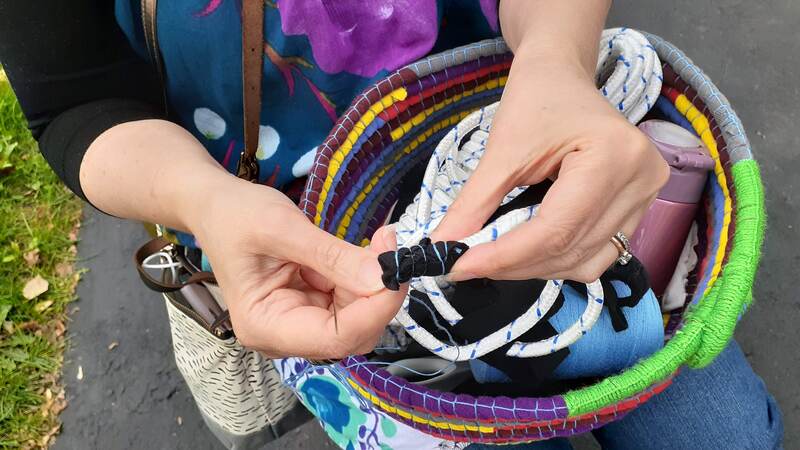
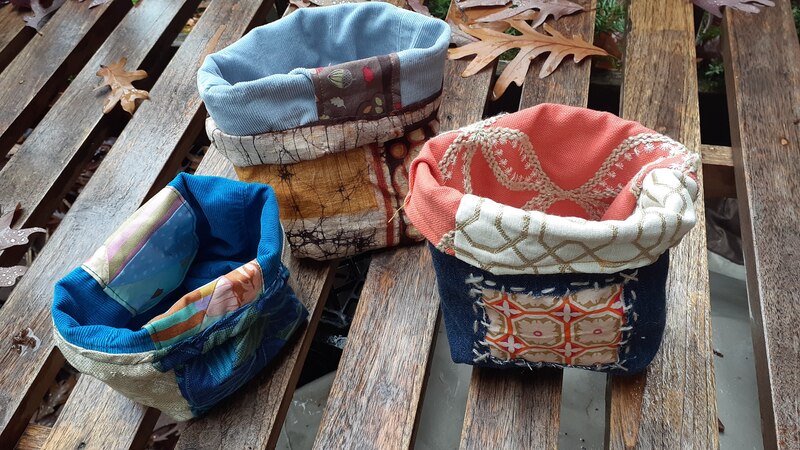
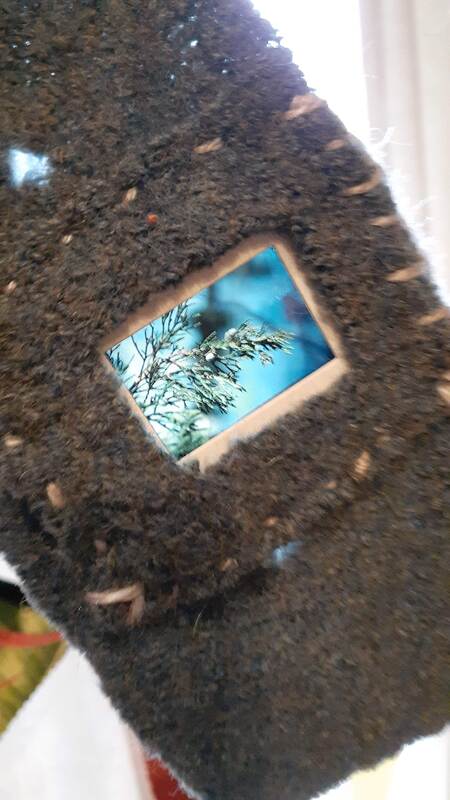
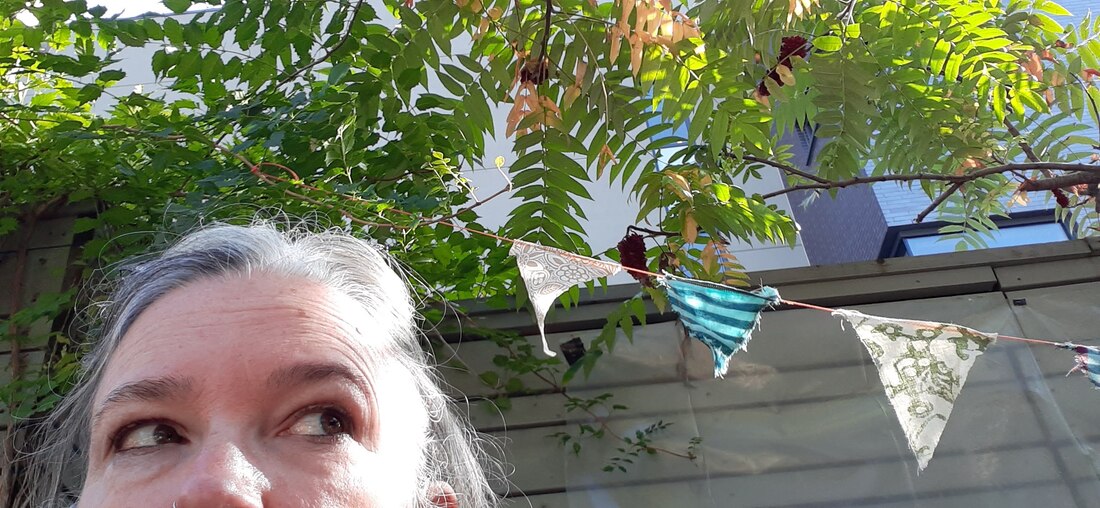
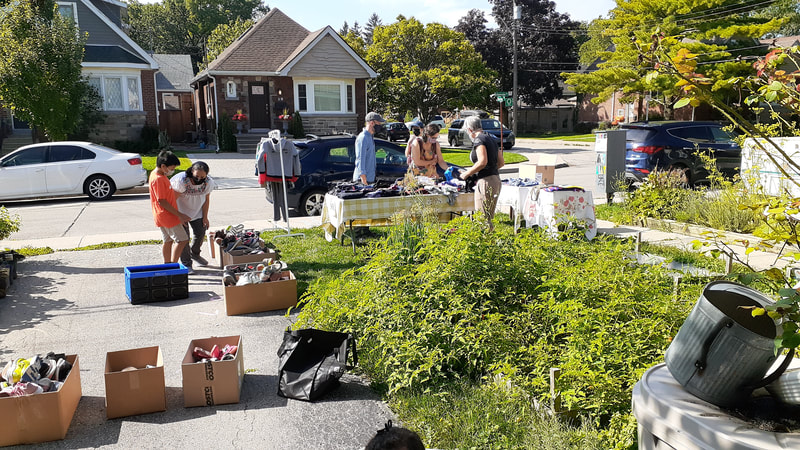
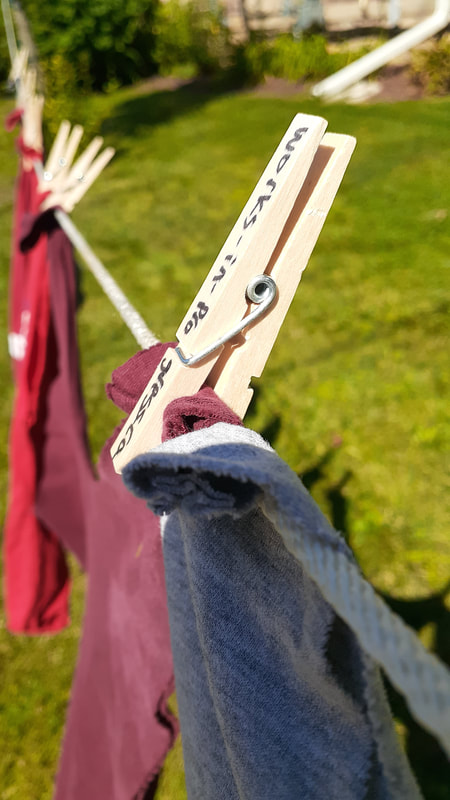
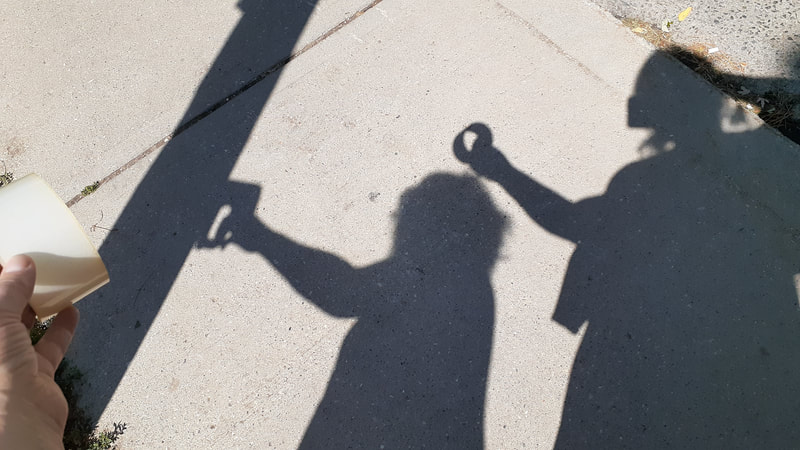
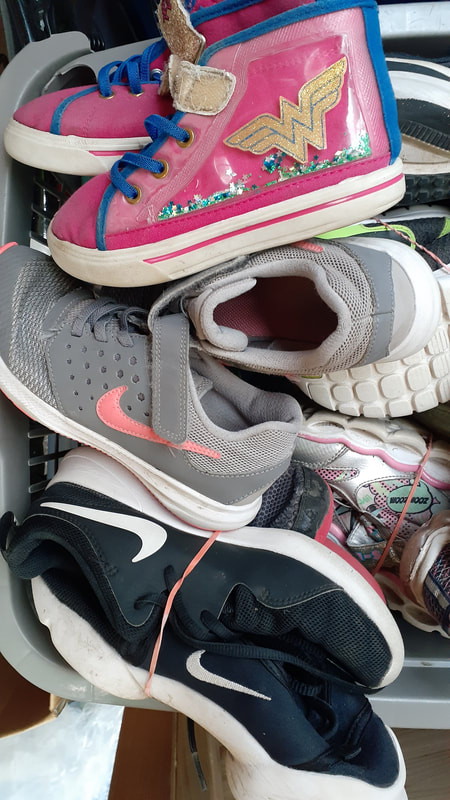
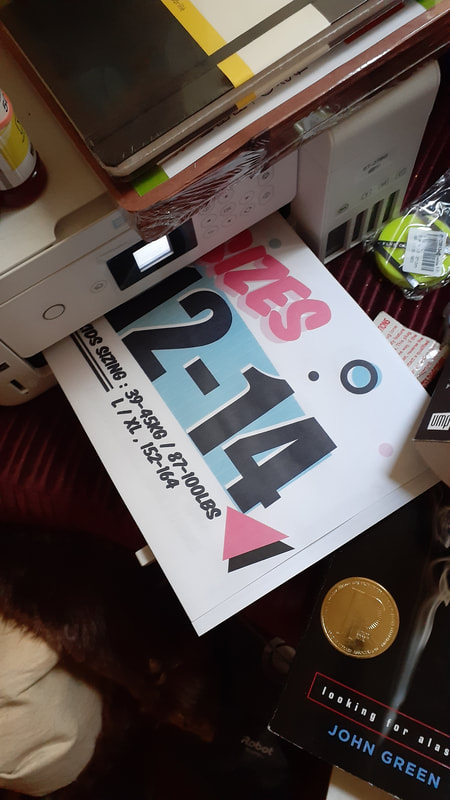
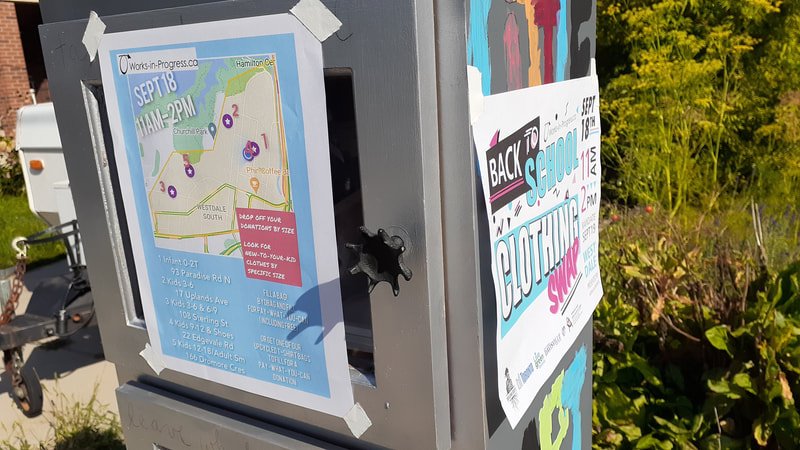
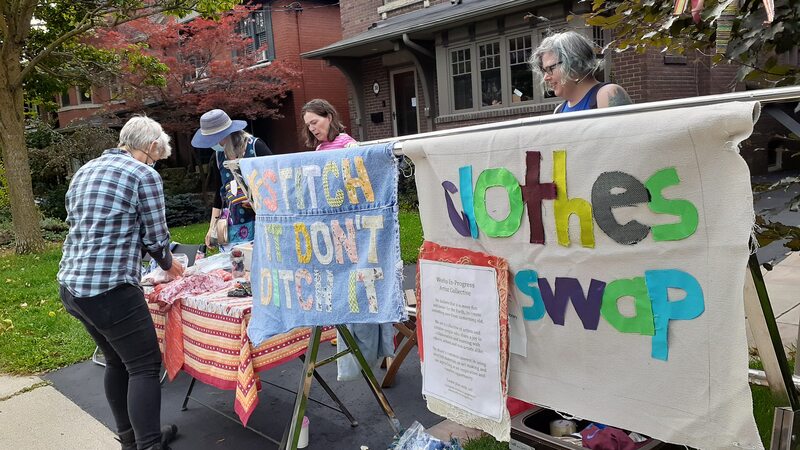
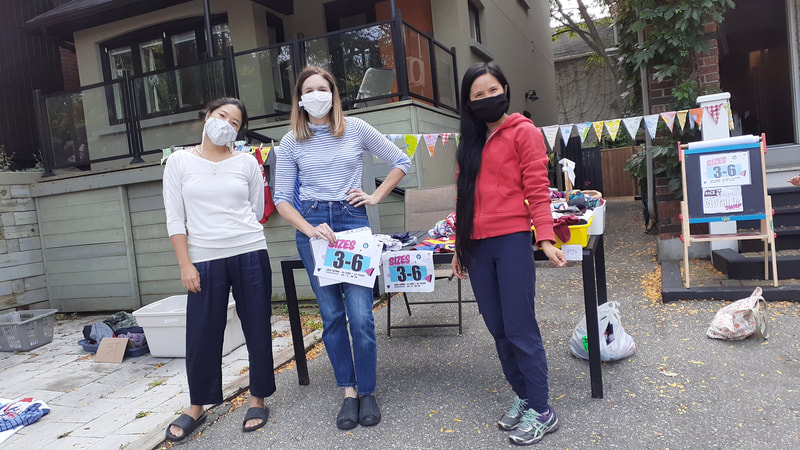
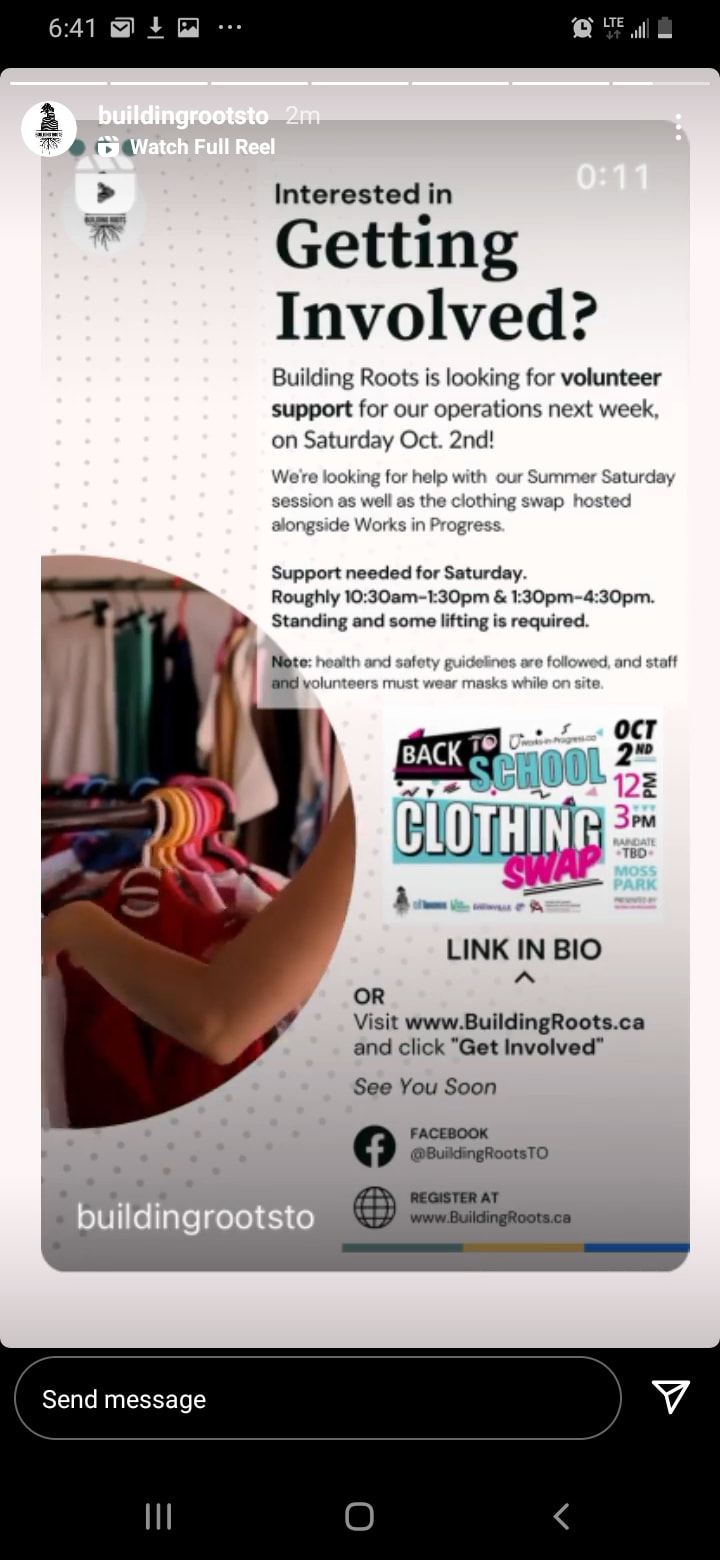
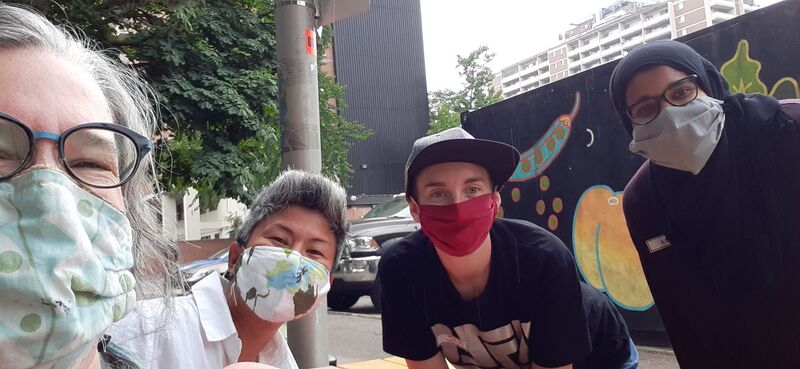
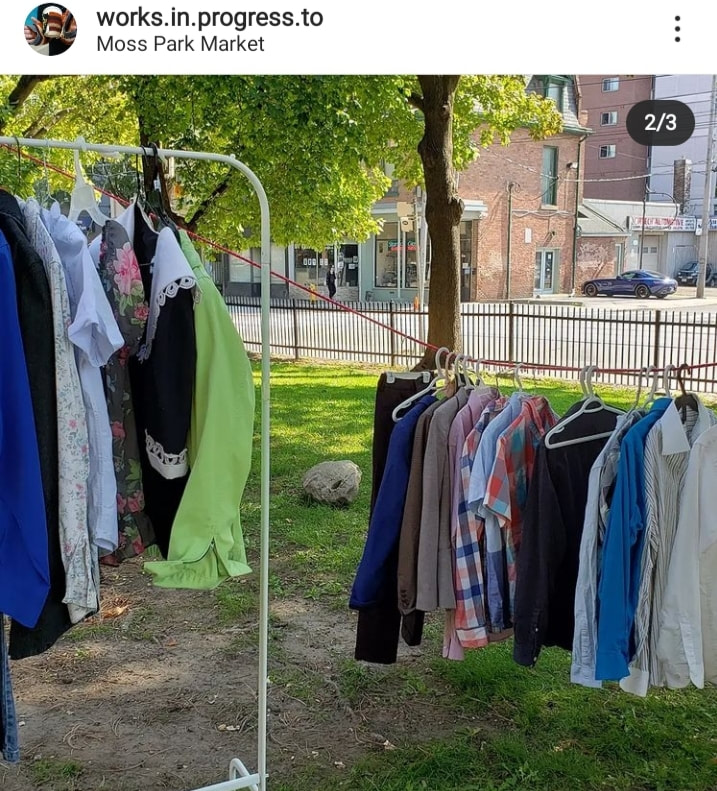
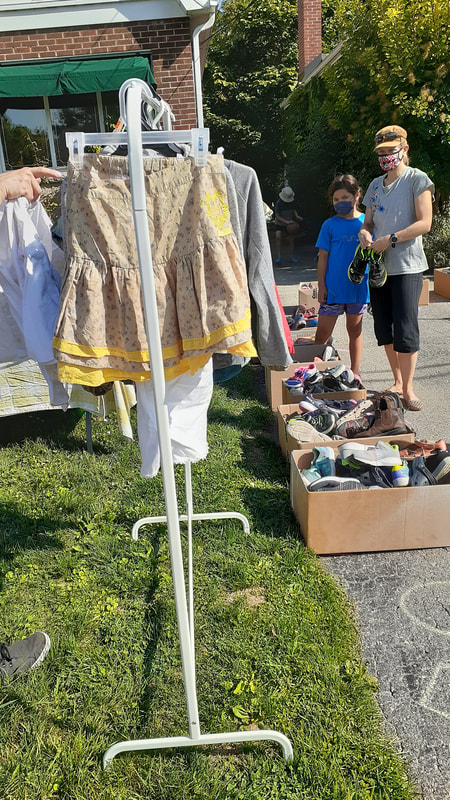
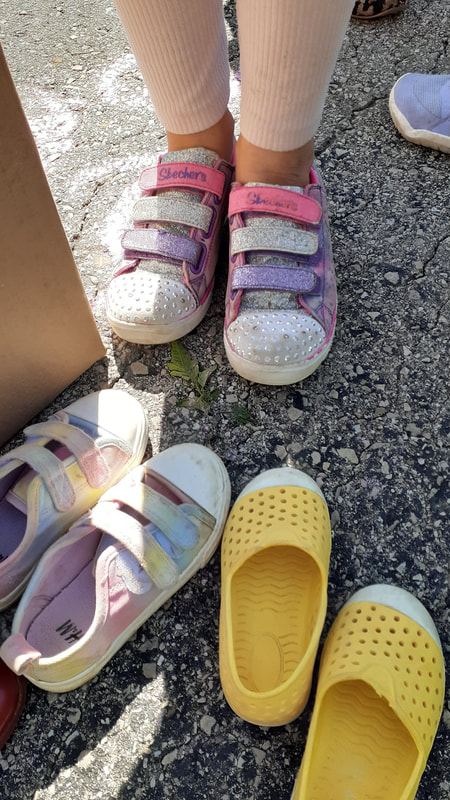
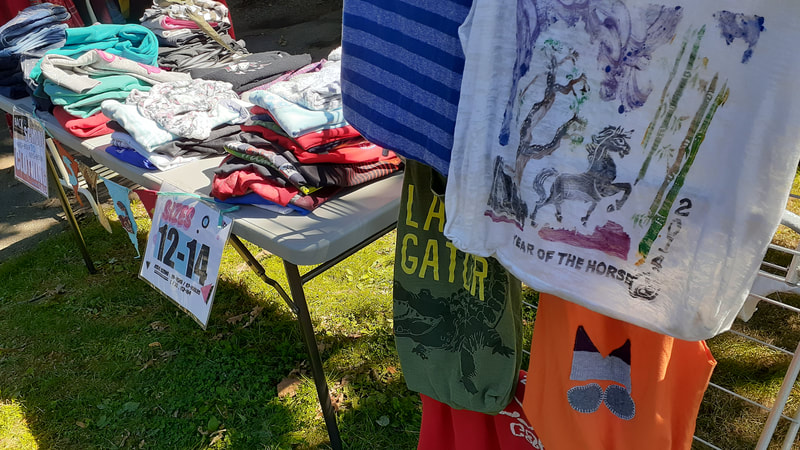
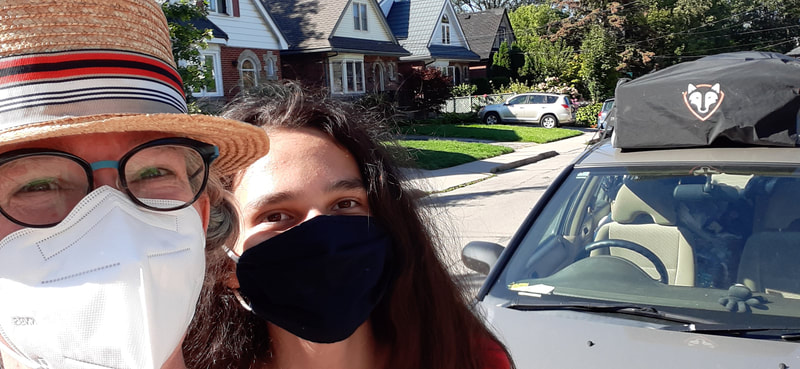
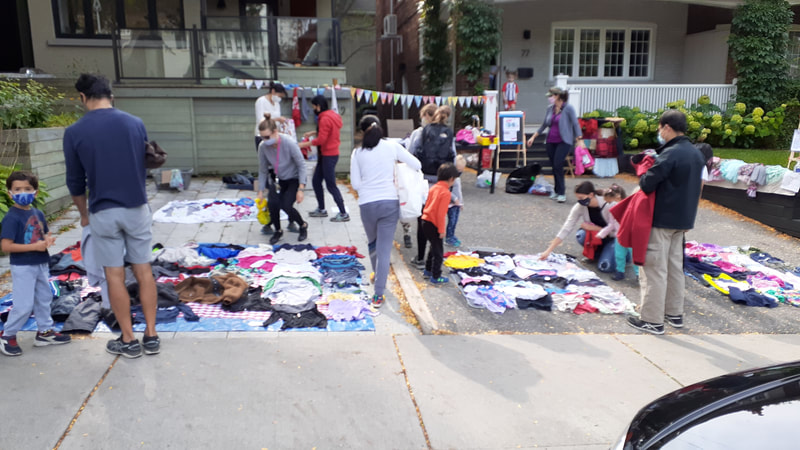
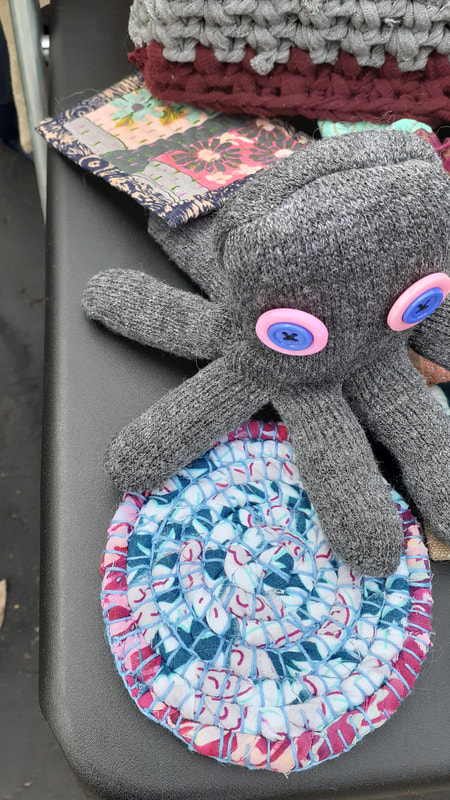
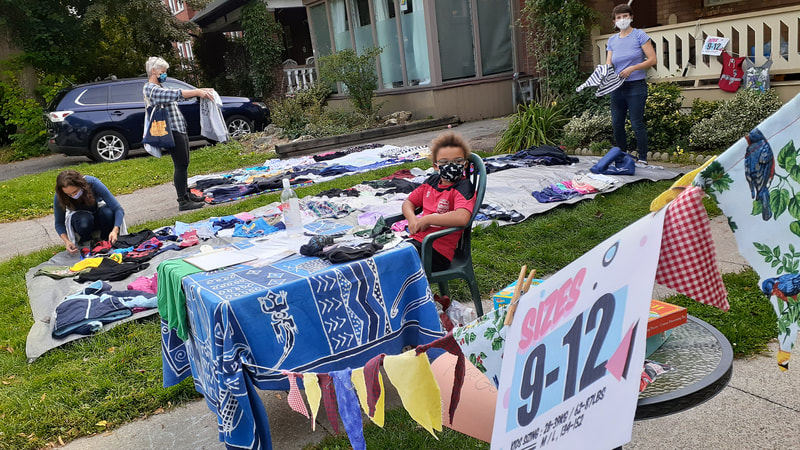
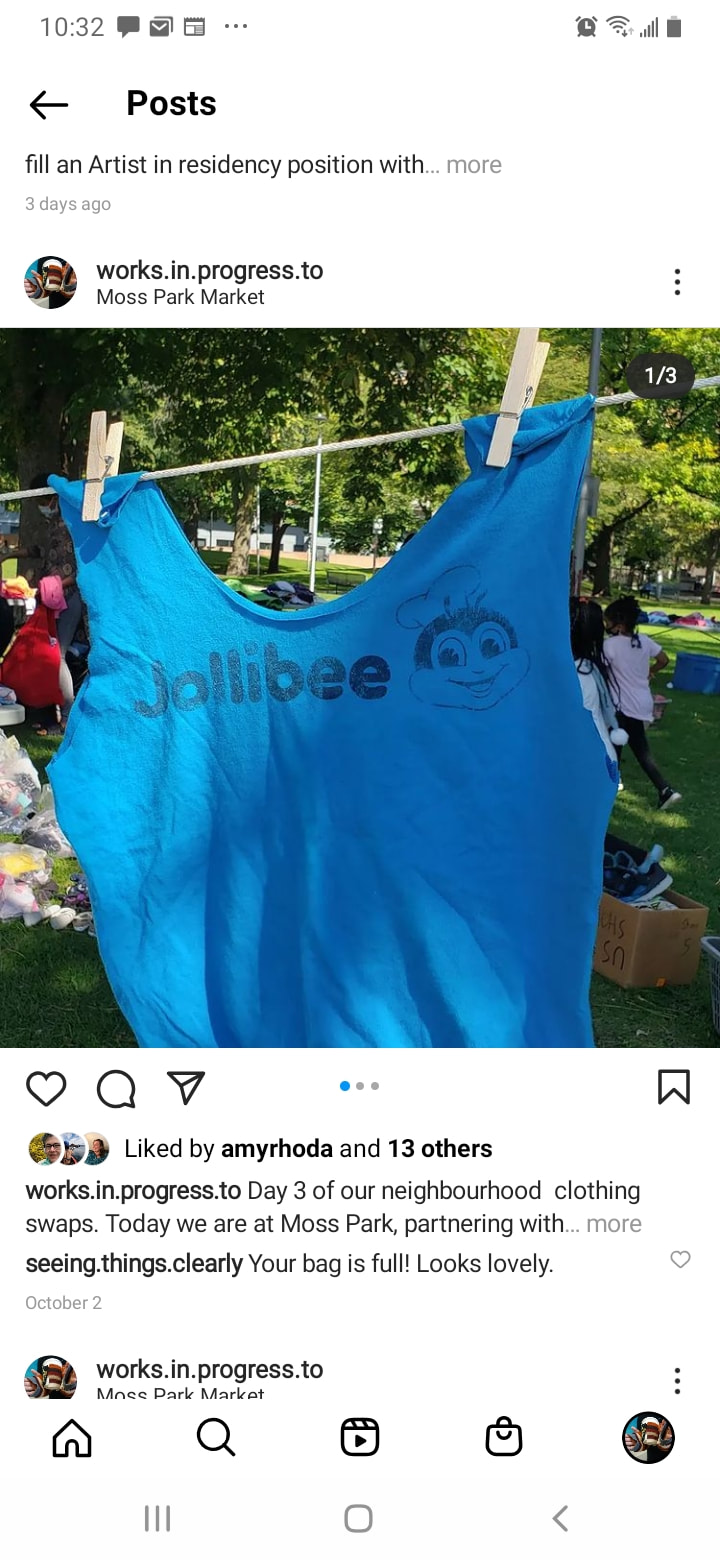
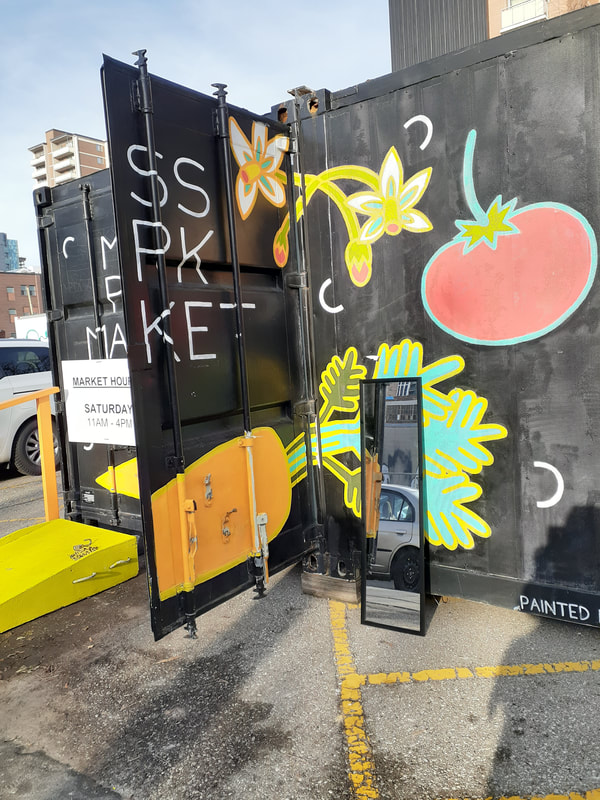
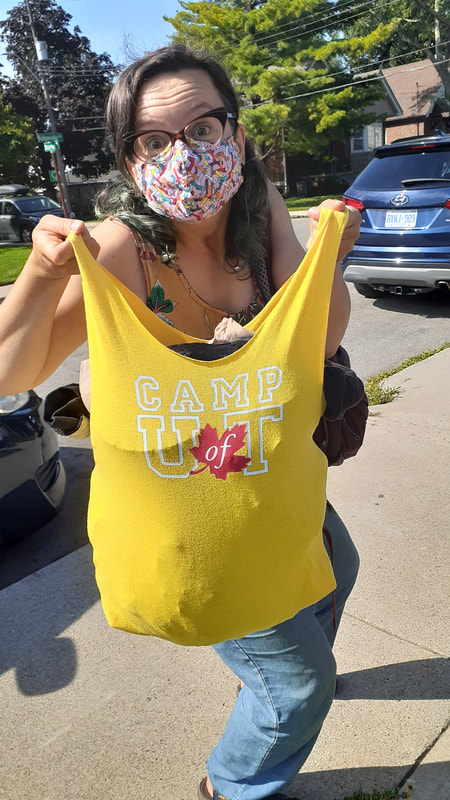
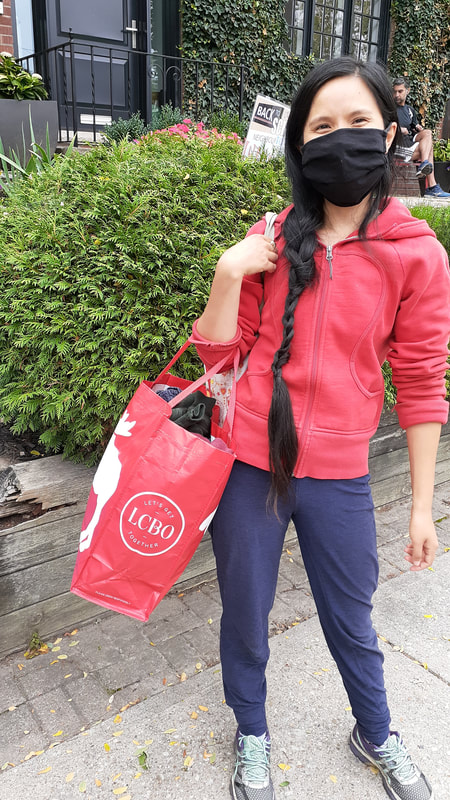
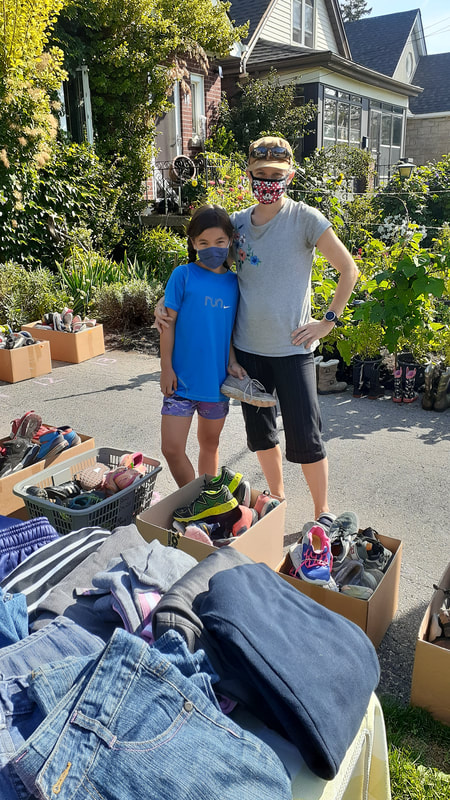
 RSS Feed
RSS Feed
